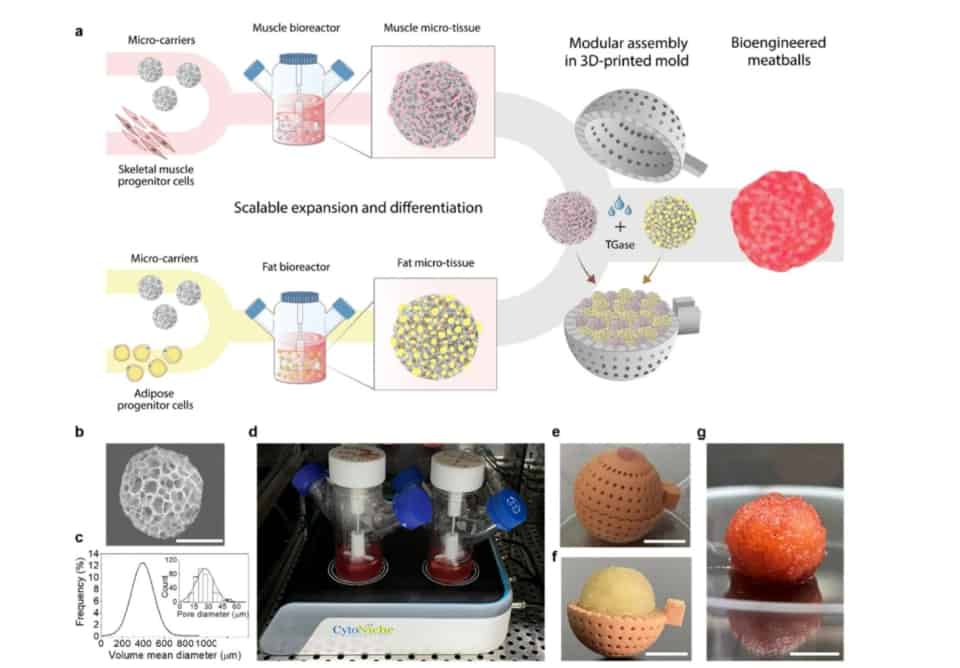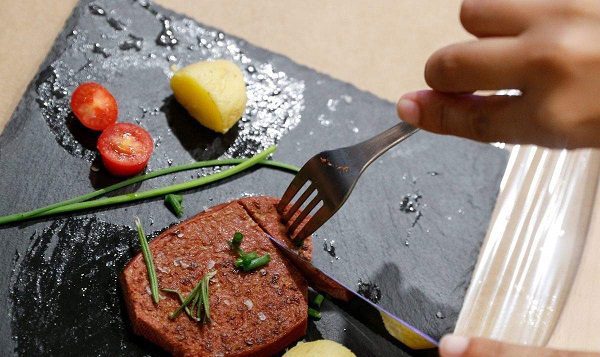Researchers at China’s Tsinghua University and Nanjing Agricultural University have developed a new technology that they believe could speed up the commercialization of cultivated meat.
The technology involves a cell expansion scaffold consisting of a porous 3D gelatin micro-carrier. In experiments, the edible scaffold increased cell expansion by 20 times over the course of a week, compared to under ten times for previous technology.
The researchers used the scaffold to produce small meatballs, cultivating pork muscle and fat cells separately before combining them in a 3D-printed mould. When tested, the nutritional content of the meatballs was said to be superior to conventional pork meatballs, containing as much as five times more protein and three times less fat. The scientists concluded that the cultivated meatballs were “a nutritious alternative for ground pork products”.
“Such meat engineering method enables robust and scalable bio-fabrication of ground meat alternatives such as meatballs or sausages, which may innovate the future meat menu,” they added.

Cultivated meat in China
Consumer perceptions of cultivated meat are positive in China, with one study finding that as many as 90% of consumers would be willing to eat it. Cultivated meat investments are also soaring in the country, largely driven by food security concerns.
This January, China’s five-year agricultural plan made mentioned cultivated meat for the first time ever, signifying that officials likely believe developing the industry is in the national interest. Meanwhile, Chinese cultivated meat companies are going from strength to strength — such as Joes Future Food, which last year raised $10.9 million and announced it would be building a cultivated pork production line.

“Other nations would be wise to follow China’s example by investing in this smarter way of making meat before they get left behind,” said Mirte Gosker, Acting Managing Director of The Good Food Institute APAC.









